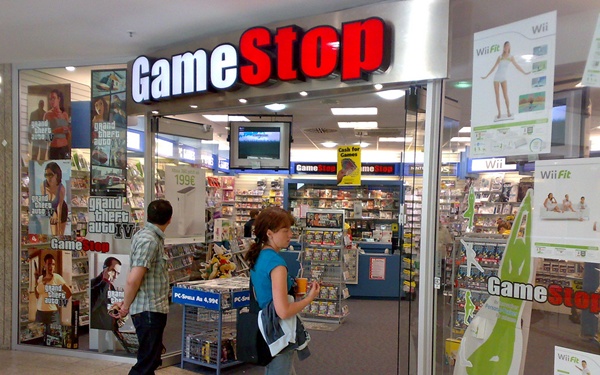When Facebook started rolling out their plan to put online stores on their platform in November, 2010, many believed that “F-Commerce” was the next big thing. It was heralded as a competitor for Amazon, a socialized shopping experience that allowed consumers to go to Facebook to find all of their favorite brands and buy products directly from the social network.
The concept was flawed from the start and the cracks are starting to show as Gamestop joins a growing list of retailers who tried F-Commerce, only to abort quickly. Their Facebook store lasted 6 months, longer than many others like Gap, J.C. Penney’s, Nordstrom, and Delta Airlines. People simply don’t want to buy from Facebook storefronts.
“There was a lot of anticipation that Facebook would turn into a new destination, a store, a place where people would shop,” said Forrester Research analyst Sucharita Mulpuru. “But it was like trying to sell stuff to people while they’re hanging out with their friends at the bar.”
It comes down to mentality. People treat the internet much the same as they treat real life. When we’re at work, we have a professional mentality. When we’re hanging out with friends at a bar, we have a different mentality. When we are out doing chores, the mentality changes once again. The same is true on the internet. We are task-oriented on the internet much the same as we are in real life.
Putting a Gap storefront on Facebook is like putting a Gap store in a bowling alley. When we go to Facebook or a bowling alley, we’re there to enjoy ourselves, to interact with friends and family. We aren’t there to shop.
When we go to Amazon or eBay, we have a purchase in mind. We might even have our credit card handy as we’re browsing merchandise and comparing products.
Nobody pulls out their credit card before going to Facebook.
As the model fails, others are working just fine prior to the company going public. With 4th quarter sales topping $1 billion last year, who needs storefronts?
Hunch CEO Chris Dixon summed it up nicely in a Tweet:



Agree that Facebook isn’t a place to shop…. I’ve certainly never bought anything there. But I do think there is value in having a ‘shop’ on Facebook, displaying your products and product information before someone ever has to go surfing the net to your website.
We’ve found (from trends on Facebook ads and pages) that most people want to stay ON Facebook. They aren’t clicking out to external websites. Good shops on Facebook sould be getting people’s attention enough to make them click through to external webistes to make a purchase.
Would be interested to see those stats – how many people who purchased on your site came from Facebook? or even came from your shop page on Facebook?
– Danielle
@ Atomicdust
Totally agree with the exclusives. And even if it isn’t to actually buy ON Facebook, exclusive discount codes that can be used on the website to buy are extremely valuable. Isn’t there some stat out there that says most people like Facebook Pages for deals, offers?